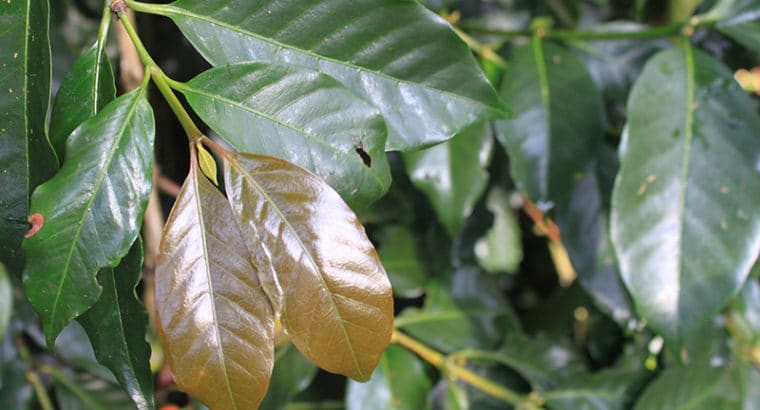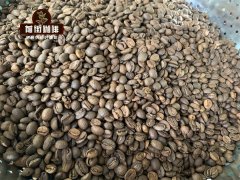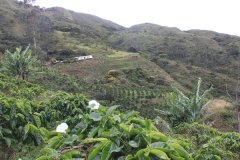Why is organic coffee expensive? Will organic coffee be a safer coffee?
When it comes to organic coffee, as we often mention, organic tea actually means the same thing, what is the organic definition related to coffee. Then let's go on to learn a little bit more about it.
Organic certification of crops, in this case, coffee-has four basic components:
1. Do not use synthetic pesticides, herbicides or fungicides. This means that nothing manufactured or chemically derived can be used. There is a short list of acceptable composite inputs, but in general, everything used must be non-synthetic.
two。 How to manage the soil. Most of the rules on organic agriculture are about soil management. This includes things such as how you keep the soil healthy, how many nutrients the soil contains and what kind of nutrients it contains. This is especially important for coffee, because 3. Coffee beans grow on rooting trees and remain the same in the same place for decades. Soil.
4. How farmers manage diseases and insect pests. Organic pest management includes the introduction of predator species or the use of mulch crops.
Whether you have a plan or not. To obtain organic certification, you must have a strict management plan and keep very detailed records.

What's the difference between "organic certification" and "USDA organic"?
They are very similar. All organic certifications in the United States are obtained through the United States Department of Agriculture (USDA) and must comply with USDA regulations. Crops outside the United States can also be certified by USDA standards. Different countries can also have different certifications. For example, Japan has its own certification, but most of the tenets are the same. Most other major international certifications, such as those of Japan, have equal status in the United States-which means that the USDA says these products can be marked as organic, even if the standards used for certification are not USDA standards.
Is there an organic certification for coffee?
No, organic certification is divided into two categories: crops and livestock. Coffee belongs to the crop category and must meet all the requirements of the first question in order to obtain organic certification. Interestingly, to sell a product as an organic certified product, everyone in the supply chain must be certified. This means that, as processors, we, as well as exporters, importers and transporters, must be certified. This maintains the integrity of the coffee throughout the process.
What does a "processor" have to do to get organic certification?
Organic coffee must be separated from non-organic coffee and ensure that there are no external factors affecting coffee, as all coffees do.
Why provide non-organic coffee?
Want to support farmers who want to transform, and don't want to reject farms where organic certification is not economically viable. Sometimes it is difficult for farmers to transform according to their past practices. These are just a few reasons to use non-organic coffee.
Is it an economic burden to obtain organic certification?
Organic certification can be expensive. You must pay for registration and inspection, which can be very time-consuming. People pay extra for certified coffee, but it takes time, so it's not always clear whether it will pay off financially.
It is also more expensive to buy certified organic coffee, which means the price is slightly higher for consumers.
Is organic coffee better or safer?
No, you can't really taste the difference between organic and uncertified organic. What matters to organic is what happens over time. That means thinking about which coffee will taste better in the next 10 or 15 years. You must also consider the profitability of farmers in the future based on their certification or lack of certification.
Because coffee is the seed of the fruit, when pesticides are sprayed, they are sprayed on the outside of the fruit rather than directly on the beans. After they are picked and processed, the coffee beans are roasted at very high temperatures-ensuring that anything that is not needed will not survive.
Organic is also safer for workers because it minimizes the risk of workers smearing substances on coffee trees.
Important Notice :
前街咖啡 FrontStreet Coffee has moved to new addredd:
FrontStreet Coffee Address: 315,Donghua East Road,GuangZhou
Tel:020 38364473
- Prev

What is a coffee DNA test? Can coffee DNA testing help farmers increase coffee production?
In the past few years, the World Coffee Research Center (WCR) has been working to establish a genetic database of coffee varieties. These reference samples were collected from a large number of coffee plants from research institutions around the world. Using the database, WCR began providing genetic testing services to coffee producers in 2017. The goal of this service is to help plant researchers and production
- Next

How is the coffee delivered from the farm to the cup? What process does it take for coffee to be roasted?
Coffee grows best in countries near the equator. We usually divide these countries into three categories: central / South America, Africa and the Pacific. If you are in the United States, none of these places are particularly close, so today we will outline how coffee goes from the farm to your cup. This is often referred to as the supply chain, although the boutique coffee industry usually uses the term value chain, and we will use its physics
Related
- Beginners will see the "Coffee pull flower" guide!
- What is the difference between ice blog purified milk and ordinary milk coffee?
- Why is the Philippines the largest producer of crops in Liberia?
- For coffee extraction, should the fine powder be retained?
- How does extracted espresso fill pressed powder? How much strength does it take to press the powder?
- How to make jasmine cold extract coffee? Is the jasmine + latte good?
- Will this little toy really make the coffee taste better? How does Lily Drip affect coffee extraction?
- Will the action of slapping the filter cup also affect coffee extraction?
- What's the difference between powder-to-water ratio and powder-to-liquid ratio?
- What is the Ethiopian local species? What does it have to do with Heirloom native species?

